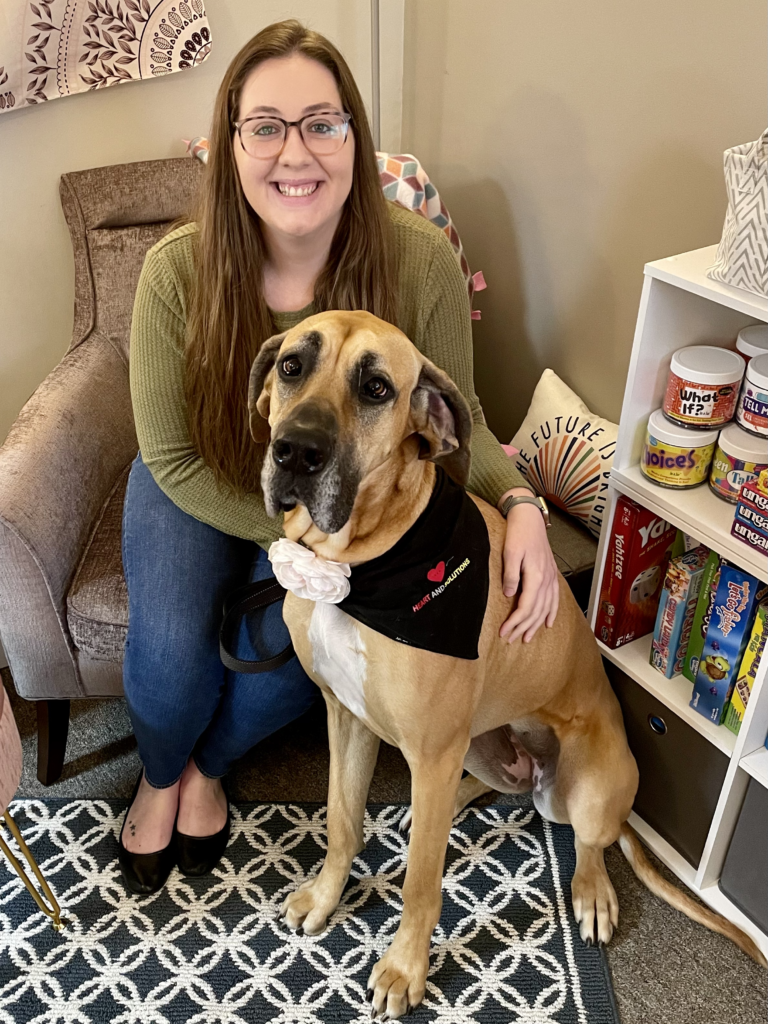Meet Becker
Becker is a certified therapy dog through the Alliance of Therapy Dogs. She has undergone extensive obedience training and multiple tests/observations in order to become certified.
Becker is a 2.5 year old Great Dane who loves playing with her friends, going on runs, and making people smile. While at work, Becker’s goal is to assist her handler (Emma) in making others smile and improving their overall mood. Becker seeks to do this by being present for clients to pet, giving the occasional lick, and simply lending her paw to be held when needed.
Becker joins her handler, Emma Morgan, for sessions only on Fridays at Heart and Solutions.

Animal assisted therapy was first utilized by the ancient Greeks when they would use horses in an attempt to lift the spirits of the severely ill. In medieval Belgium society, humans and animals were rehabilitated together, being paired with one another for companionship. In the 1600s, physicians would reportedly utilize horses, as well, to attempt to improve the physical and mental health of their patients. In the 1800s, Florence Nightingale observed that small pets reduced the levels of anxiety and stress in psychiatric patients, both children and adults.
Though there are many documented uses of animals to increase the wellbeing of humans’ mental and physical health, the first formal research involvedly animal assisted therapy was not until the 1960s. Dr. Boris Levinson found that the presence of his dog caused a positive effect on his young patients. He discovered that many of them were actually more comfortable around the dog than other humans. Dr. Sigmund Freud utilized his dog in his practice as well, noticing that his dog would react differently to patients who were experiencing an extreme amount of stress as opposed to those who were not.
While the use of animals in the therapeutic and medical setting has come a long way since the ancient Greeks, the overall message seems to remain intact. Animals, and more specifically dogs, are able to sense emotions on humans and provide support when needed. It is shown that working with animals in a professional medical setting, or having your own pet, can significantly increase your overall health and mental wellbeing.

 Written by Emma Morgan on May 5, 2022.
Written by Emma Morgan on May 5, 2022.